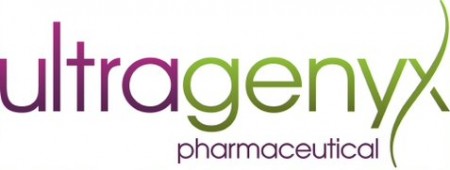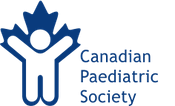Lifelong Learning in Paediatrics Courses
Overview
These courses are designed to help paediatric health care professionals enhance their knowledge and increase their diagnostic skills in specific content areas.
Course credits
Maintenance of Certification (MOC)
This event has been approved by the Canadian Paediatric Society for a maximum of 9.0 credit hours. It is an Accredited Group Learning Activity (Section 1) as defined by the Maintenance of Certification Program of the Royal College of Physicians and Surgeons of Canada.
College of Family Physicians of Canada Members (CFPC)
CFPC members may claim up to 50 certified credits per cycle for participation in RCPSC MOC Section 1 accredited activities. The maximum does not apply to CFPC Affiliate members.
AMA PRA Category 1 credits™
Through an agreement between the Royal College of Physicians and Surgeons of Canada and the American Medical Association, physicians may convert Royal College MOC credits to AMA PRA Category 1 Credits™. Information on converting credits can be found at www.ama-assn.org/go/internationalcme.
European CME Credits
Live educational activities, occurring in Canada and recognized by the Royal College of Physicians and Surgeons of Canada as Accredited Group Learning Activities (Section 1), are deemed by the European Union of Medical Specialists (UEMS) eligible for ECMEC®.
CanMEDS roles
CanMEDS is an initiative to improve patient care by defining the competencies needed for medical education and practice. One or more of seven key roles—Medical Expert (the central role), Communicator, Collaborator, Manager, Leader, Health Advocate, Scholar and Professional—are assigned to frame each learning segment.
A summary of the CanMEDS roles can be found on the Royal College of Physicians and Surgeons of Canada website: www.royalcollege.ca/portal/page/portal/rc/canmeds.
Language practice
All course presentations are delivered in English unless otherwise indicated.
Course schedule
Friday, October 15 (4.5 study credits)
(All times are Eastern Time (ET))
1100
Welcome and introductions
1110
Autism spectrum disorder (ASD): Office diagnosis
CanMEDS: Medical expert
Tara Kennedy, MD, PhD
At the end of this presentation, participants will be able to:
- Implement an office-based process for ASD assessment.
- Select office-based tools to support diagnostic assessment.
1130
Obstructive sleep apnea
CanMEDS: Medical expert
Michael Derynck, MD
At the end of this presentation, participants will be able to:
- Establish a differential diagnosis of obstructive sleep apnea.
- Determine when and which objective testing modality should be ordered.
- Initiate appropriate treatment options.
1150
Question/answer session
1205
Migraine management
CanMEDS: Medical expert
Wendy Stewart, MD
At the end of this presentation, participants will be able to:
- Determine when to investigate and when not to investigate.
- Establish the treatment options including complementary and alternative.
1225
Procedural sedation
CanMEDS: Medical expert
Kristina Krmpotic, MD
At the end of this presentation, participants will be able to:
- Recognize the indications and limitations of high flow use.
1245
Question/answer session
1300
Stretch break
1310
Concurrent workshops
Workshops are case-based, interactive and practice-oriented. Course faculty present clinical cases and attendees are encouraged to bring cases of their own into discussion.
- Developmental paediatrics
Autism Spectrum Disorder (ASD): Differential diagnosis and comorbidities
Tara Kennedy, MD, PhD
- Neurology
Movement disorders (ticks, tremors, dystonia, PANS)
Wendy Stewart, MD
- Respirology
Review of interesting cases (e.g. PFTs, x-rays, etc.)
Michael Derynck, MD
1440
Stretch break
1455
General lecture: Difficult living circumstances, toxic stress and the developing brain: A social paediatrics approach
CanMEDS: Medical expert
Sarah Gander, MD
At the end of this presentation, participants will be able to:
- Define social paediatrics.
- Understand how this medical-social-legal model can work to mitigate the social determinants of health in children and youth.
1540
Question/answer session
1550
Closing remarks (day 1)
Saturday, October 16 (4.5 study credits)
(All times are Eastern Time (ET))
1100
Welcome and announcements
1105
Co-developed symposium
Recent advances in the diagnosis, management & treatment of X-Linked Hypophosphatemia (XLH)
Leanne Ward, MD
This symposium was co-developed with Ultragenyx Canada Inc. and was planned to achieve scientific integrity, objectivity and balance.
At the end of this presentation, participants will be able to:
- Appreciate the mechanism of disease of XLH.
- Understand the diagnostic approach to XLH, and historical approaches to management.
- Increase awareness of recent developments in the treatment for XLH.
- Identify challenges in the transitioning of pediatric patients into adult care.
1145
Question and answer
1155
Transition break
1200
Concurrent workshops
(repeated from Friday)
1330
Stretch break
1340
What’s new in asthma
CanMEDS: Medical expert
Michael Derynck, MD
At the end of this presentation, participants will be able to:
- Optimize asthma management with best evidence.
1405
Use of high flow oxygen
CanMEDS: Medical expert
Kristina Krmpotic, MD
At the end of this presentation, participants will be able to:
- Enumerate the indications and safety considerations around sedation of children and youth.
1425
Question and answer
1440
CBD oil for neurologic conditions
CanMEDS: Medical expert, communicator
Wendy Stewart, MD
At the end of this presentation, participants will be able to:
- Understand most up-to-date evidence and indications.
- Communicate effectively with families regarding use of CBD oil.
1500
Autism spectrum disorder (ASD): Investigations and treatment
CanMEDS: Medical expert
Tara Kennedy, MD, PhD
At the end of this presentation, participants will be able to:
- Apply appropriate investigations for newly diagnosed patient.
- Recognize evidence for behavioural and alternative treatments.
1520
Question and answer
1535
Closing remarks
Faculty
Chair
Mark Messenger, MD, FRCPC
Assistant professor, paediatrics, Dalhousie and Memorial Universities; Community, consulting paediatrician, Fredericton, N.B.
Faculty
General lecture
Sarah Gander, MD, MEd, FRCPC
Faculty, Dalhousie University and Memorial University of Newfoundland and Labrador; General paediatrician, clinical and academic department head paediatrics, Saint John Co-Founder New Brunswick Social Pediatrics Research Program, Saint John, N.B.
Acute care
Kristina Krmpotic, MD, MSc, FRCPC
Assistant professor, department of critical care, Dalhousie University; Paediatric intensive care physician and physician lead of the specialized paediatric outreach team, IWK Health Centre, Halifax, N.S.
Developmental paediatrics
Tara Kennedy, MD, MEd, PhD, FRCPC
Assistant professor of paediatrics, Dalhousie University; Clinical assistant professor of medicine, Memorial University; Developmental paediatrician, clinical leader of paediatric autism rehabilitation services, Stan Cassidy Centre for Rehabilitation, Fredericton, N.B.
Neurology
Wendy Stewart, MD
Associate professor and director, Medical Humanities-HEALS Program; Department of paediatrics, Dalhousie Medicine New Brunswick, Saint John, N.B.
Respirology
Michael Derynck, MD, FRCPC
Assistant Professor, Queen’s University; Pediatric Respirologist, Kingston Health Sciences Centre, Kingston, Ont.
Continuing Professional Development (CPD) / Planning Committee
Chantal Gagné, MD, Centre intégré de santé et de services sociaux de l’Outaouais, Cantley, Que.
Mark Feldman, MD, Hospital for Sick Children, Toronto, Ont.
Jae-Marie Ferdinand, MD, Quinte Healthcare Paediatrics Clinic, Belleville, Ont.
Ayisha Kurji, MD, Royal University Hospital, Saskatoon, Sask.
Mark Messenger, MD, (Chair) Fredericton Medical Center, Fredericton, N.B.
Jackie Millette, MPA, CPS Director, Education and Guideline Development, Ottawa, Ont.
Rachel Ouellette, MD, Dr. Everett Chalmers Regional Hospital, Fredericton, N.B.
Mumtaz Virji, MD, B.C. Children’s Hospital, Vancouver, B.C.
General information
Certificate of attendance
An email providing a certificate of attendance will be sent to all participants following the course.
Concurrent workshops
Be sure to select your workshop preferences when you register! Workshops are case-based, interactive, and expand on their subject area. Course faculty present cases and attendees are encouraged to bring cases of their own into the discussion. While every effort is made to assign participants to their workshops of choice, seating is limited to 25 participants per workshop and assigned on a ‘first come, first served’ basis. The CPS reserves the right to cancel workshops with insufficient registration.
PowerPoint presentations
Slide presentations will be available on the platform at the beginning of the course.
Disclaimer
The material presented at the Lifelong Learning in Paediatrics course has been made available by the Canadian Paediatric Society for educational purposes only. The material is not intended to represent the only, or necessarily the best, method or procedure appropriate for the medical situations discussed, but rather is intended to present an approach, view, statement, or opinion of the speakers which may be helpful to others who face similar situations.
Time zone
All course times are Eastern Time (ET).
Registration
| Before September 15 | After September 15 | |
|---|---|---|
| CPS members | ||
| Physician, surgeon, dentist | ||
| Emeritus*, nurse, allied health professional | ||
| Resident | ||
| Medical student | ||
| Life/Honorary** | no charge | no charge |
| Non-members | ||
| Physician, surgeon, dentist | ||
| Nurse or allied health professional | ||
| Resident*** | ||
| Medical student*** | ||
| Corporate/government/other |
* A CPS member for 20 years and age 65 and over.
** As designated by the CPS Board of Directors.
*** Proof of status is required for full-time students, trainees and residents. Student registration will not be considered complete until proof of status has been received. To qualify for the student rate, you must submit a copy of your student card, a transcript, or a letter from your supervisor or Dean. You will be asked to upload this documentation during the registration process.
Cancellation/refund policy
Cancellation for any reason must be received in writing by September 15, 2021 to generate a refund, and a $100 administrative charge will be deducted. No refunds will be issued for cancellations after this date. Registration fees are not transferable to another attendee or meeting.
Resident and medical student registration refunds will be charged a $25 administrative fee.
International Attendees
International attendees are welcome to register and are subject to the same rates and categories as all other registrants. International attendees are tax exempt.
Privacy Policy – Personal information
Contact and other personal information obtained from your conference registration form is closely protected. It is used by CPS staff to administer delegate lists and attendance records for Section 1 credits, or to advise delegates of future CPS events and offerings. Withholding your consent to use this information as described may limit our ability to serve you. To update personal information or ask questions about how we collect or use personal information, contact [email protected].
Sponsors
Co-developed symposium sponsor

Is your company interested in sponsoring or hosting a symposium at this CPS Lifelong Learning in Paediatrics course? Contact Marlene Murray by phone at 613-526-9397, ext. 227, or by email at [email protected].
Last updated: Jun 6, 2022
